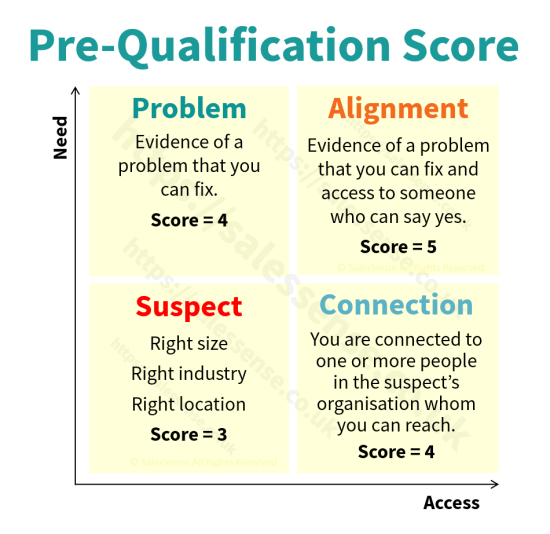Almost everyone can learn how to sell using these simple principles.

Do you need to learn how to sell? Take a shortcut. Schedule a call and tell me what you are looking for. I'll share what I know. Learn how to sell sooner with help. Reach out today for a special offer.
How do I train myself for sales?
If there were such a thing as a sales success formula for those who would learn how to sell, it would have to have the flexibility to produce a different solution for every situation. Yet there are a few fundamentals that are often overlooked.
The following four practical principles and practices will help anyone increase their chances of winning more business.
1. Doing things right is a waste of time if you don't first choose the right things to do.
Or put in the positive, if you were selling bread and you had a list of hungry people, you might expect to make a sale or two. If you call on an ideal prospect or happen to be there with the right product or service when they are looking, it's hard to lose the sale.
Apply intelligence to identify the right customers and timing. Be so precise that when you show up they say, "Funny you should call, I was just thinking about fixing that . . ."
Learn how to sell effortlessly by choosing customers with an immediate need for what you sell.
2. Stop trying. Instead, learn how to find those who need what you have.
Quite often prospective customers become obvious when you take the time to profile those who have already bought. What do your company's best customers look like? How do your closest competitors' top customers compare? With this in mind, look around - survey the marketplace. Who else looks the same? If prospective customers look the same as those who have already bought, they are likely to be grappling with similar issues. Those issues that your product or service addresses.
Learn how to recognise those who have the problems that you can solve. If you have bread to sell, only call on hungry people. Identify those with a hunger for what you sell. Then only approach those with a likely immediate need for what you offer.
3. Instead of pitching, prepare to have a candid conversation.
Determine customer situations, needs, driving factors, obstacles, and resources. Become the customer's servant in pursuit of whatever is most pressing for the customer. If your stuff doesn't help, make an introduction to something or someone that can. If your stuff doesn't fit their current picture, don't waste energy trying to paint it. Sell your truthfulness and integrity.
4. Never, never, never give in.
Churchill put it well in the context of war. What he said was, "Never give in - never, never, never, never, in nothing great or small, large or petty, never give in except to convictions of honour and good sense. Never yield to force; never yield to the apparently overwhelming might of the enemy". Note the 'get out' clause - "except to convictions of honour and good sense".
Learn How to Sell Against Stronger Competitors
Selling may not be the same as war however, there are many similarities.
- There are normally one or more competitors.
- There can only be one winner.
- All competitors have limited resources.
Military wisdom has much to offer those who would learn how to sell. Once you have committed to winning a sale (qualified in) hold nothing back. No half-hearted effort ever won a prize worth winning. Leave nothing undone and leave no effort excused. Out-think and outwork all competitors.
"The reason competent commanders win victories, achieve outstanding success, and surpass ordinary people is that they know critical information in advance."
Sun Tzu (circa 400 BCE) - Chinese general, monk, and sage.
What will I need to do to learn the skills of a professional salesperson?
To master the art of selling, you’ll need to develop a combination of technical knowledge, practical skills, and the right mindset. Here’s a guide to help you learn how to sell:
1. Understand the Foundations of Sales
Sales Process: Familiarise yourself with the stages of the sales cycle, such as prospecting, qualifying leads, presenting, handling objections, closing the sale, and following up.
Sales Methodologies: Explore a range of approaches such as SPIN Selling, Solution Selling, and the Challenger Sale to understand different strategies. Look up our CLEAR sales discovery method, sales effectiveness content, and the sales success formula.
Buyer Psychology: Study the typical customer buying and decision-making process. Learn about customer buying personas and buying triggers.
2. Build Core Skills
Communication: Learn how to have people think what you want them to think, without telling them what to think. Develop attentive listening skills to better understand customer needs.
Negotiation: Learn techniques for turning around objections and managing commercial negotiations to find mutually beneficial solutions.
Time Management: Develop the ability to prioritise tasks and focus on high-value leads and activities.
Emotional Intelligence (EQ): Cultivate empathy to build strong connections with people on purpose. Strengthen resilience to handle setbacks and rejection constructively.
3. Develop Industry Expertise
Product Knowledge: Be an expert on the features, benefits, and limitations of what you’re selling.
Market Insights: Understand your industry landscape, including competitors and customer pain points.
4. Embrace Technology
CRM Tools: Learn how to use salesforce automation tools for managing customer relationships, tracking sales pipelines, following up, and forecasting business.
Data-Driven Selling: Identify key performance indicators (KPI), collect the data, and analyse it frequently to assess performance and refine your approach.
5. Practise and Apply Your Skills
Role-Playing: Regularly rehearse sales scenarios with peers or mentors to fine-tune your techniques.
Real-World Experience: Seek out internships, entry-level roles, or freelance opportunities to gain hands-on practice.
6. Build Your Professional Brand
Use platforms like LinkedIn to establish your credibility and connect with potential clients. Share insights, successes, and thought leadership to build a strong professional reputation.
7. Commit to Continuous Learning
Ask salespeople for their book recommendations:
- How to Win Friends and Influence People by Dale Carnegie
- Let's get Real or Let's not Play by Mahan Khalsa
- Selling the Wheel by Jeff Cox and Howard Stevens
- Get Anyone to Do Anything by David J. Lieberman
- To Sell Is Human by Daniel Pink
- The Psychology of Selling by Brian Tracy
- SPIN Selling by Neil Rackham
Explore our courses:
- Free B2B Self-Led Sales Training
- Sales Training Course Index
- Attend workshops or seminars in your industry.
8. Learn from Mentors and Peers
Seek guidance from experienced sales professionals to refine your approach. Join sales-focused communities or groups to exchange tips and strategies. Consider hiring a coach.
9. Adopt a Sales Mindset
Goal-Setting: Set clear, measurable sales goals and track your progress regularly.
Motivation: Cultivate habits that keep you focused and energised.
Adaptability: Be open to feedback and be willing to adjust your techniques and practices as needed.
10. Reflect and Improve
After every sales interaction, review what worked well and what could be improved. Use performance metrics to identify areas for development and make necessary adjustments.
By combining theoretical knowledge with real-world practice and a commitment to growth, you’ll develop the confidence and skills needed to excel as a professional salesperson. Keep in mind that selling is as much about understanding people as it is about mastering techniques, so stay curious, empathetic, and driven.
Try our free sales skills and habits assessment for more.
Article by Clive Miller
If you need to learn how to sell more effectively, explore the free resources on this site or get in touch. Telephone +44 (0)1392 851500. We will be pleased to discuss your needs or talk through some options. Alternatively, email custserv@salessense.co.uk or use the contact form here.






















